Just three years after making global headlines by decriminalizing cannabis, Thailand has reversed course: as of June 26, 2025, the Thailand cannabis ban reinstates some of the region’s strictest marijuana restrictions, leaving many businesses and users facing sudden legal and financial uncertainty.
If you depend on up-to-date guidance for navigating Thai cannabis policy changes, you are not alone. The regulatory shift has immediate impacts for expats, startups, retailers, and patients, setting strict medical-only access, rigorous documentation, and severe penalties for recreational use or non-compliance. With enforcement already underway and over 70 shop closures reported in Bangkok within the first month, the risks of misunderstanding the law are higher than ever.
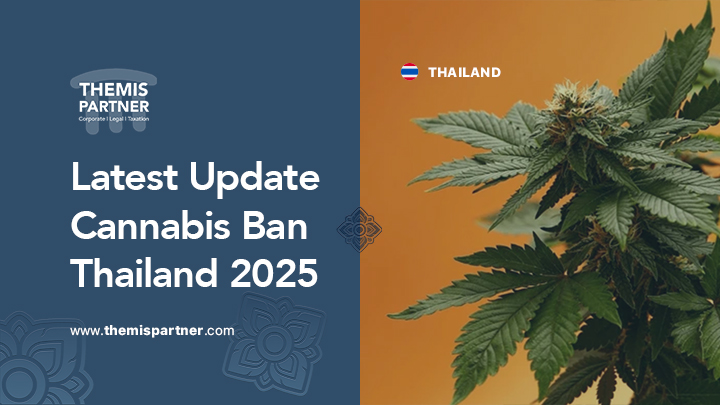
You will gain clear answers on key compliance deadlines, which activities remain legal, and how international operators must adapt to evolving Thailand cannabis recriminalization standards.
Find out what the new rules mean for your business, legal safety, or access as well as what government agencies expect from all stakeholders moving forward.
Key Takeaways
These key insights clarify Thailand’s cannabis ban as of June 2025, helping businesses and individuals navigate new legal requirements and avoid severe penalties. Themis Partner leverages regional expertise to empower clients with strategic compliance guidance on Thai cannabis policy changes and Thailand marijuana restrictions.
- Recreational cannabis use is banned nationwide in Thailand under the 2025 Thailand Cannabis ban, with only prescription-based medical use permitted.
- All cannabis products must come from DTAM-certified providers who follow Good Agricultural and Collection Practices (GACP) for strict traceability and regulatory compliance.
- Medical prescriptions for cannabis require a Thai-licensed doctor or approved practitioner and each prescription is valid for a maximum of 30 days.
- Dispensaries and clinics must document every sale, submit monthly reports, and verify patient eligibility to comply with evolving Thailand marijuana restrictions.
- Public cannabis consumption carries penalties up to 25,000 Baht (US$700) or three months in jail and is actively enforced in all provinces, including Bangkok.
- Unlicensed operations or non-compliance with prescription and sourcing rules risk business closure and criminal prosecution under the Thailand cannabis recriminalization policy.
- Tourists, expats, and visitors may only purchase or possess medical cannabis with a valid Thai prescription, and all recreational purchases are illegal.
- Import, export, and cross-border cannabis activities are tightly restricted, with only DTAM-certified products allowed and heavy penalties for unauthorized transactions.
Thailand Cannabis Ban Overview
Thailand’s cannabis laws changed dramatically between 2022 and 2025, beginning with decriminalization in 2022 that set Thailand apart as the only Asian nation to allow both recreational and medical cannabis use.
On June 26, 2025, Thailand reversed this approach and banned all recreational cannabis use, restoring strict government oversight. Cannabis is now permitted only for medical purposes with a certified prescription.
Key legal status (as of June 2025):
- Recreational use: Banned
- Medical use: Allowed (with prescription)
- Retail sales: Prescription-only, certified sources
- Cultivation: GACP certification required
- Import/export: Tightly regulated, certified only
- Cannabis extracts over 0.2% THC: Classified as narcotics
Timeline of major policy shifts:
- 2022: Cannabis decriminalized nationwide
- 2023-2024: Rapid industry growth and regulatory ambiguity
- June 2025: Recreational ban enacted, new compliance measures introduced
The Ministry of Public Health and Department of Thai Traditional and Alternative Medicine (DTAM) now oversee all cannabis activity, focusing on youth protection, public health, and cited risks from unregulated access. Recreational cannabis is strictly prohibited across Thailand and only certified medical use is legal. Compliance is enforced by multiple government agencies, with severe penalties for violations.
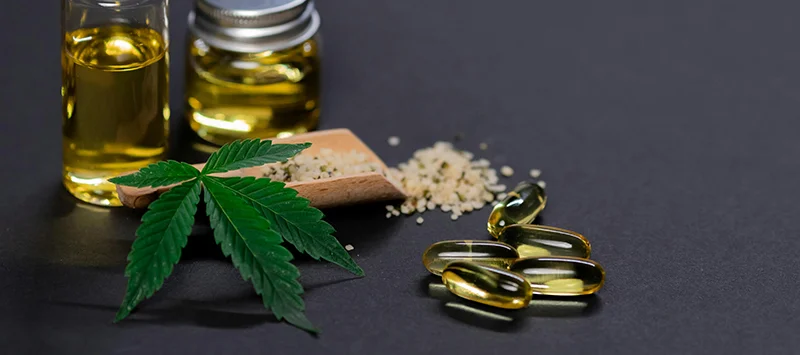
New Cannabis Restrictions: Medical-Only Framework & Compliance
Thailand’s cannabis law now prohibits all recreational use, effective June 26, 2025. Anyone found using cannabis for non-medical purposes faces strict penalties and immediate enforcement.
Medical cannabis is legal only under a prescription-based framework:
- Valid medical prescription required per purchase
- Prescriptions must be issued by a Thai-licensed doctor or approved traditional practitioner
- Prescriptions are valid for up to 30 days only
Cannabis products are tightly defined under the new law:
- Cannabis flowers: classified as “controlled herbs,” requiring a government license to grow, sell, or process
- Extracts and products exceeding 0.2% THC: legally defined as narcotics, with heavy criminal penalties for possession over 30 grams or milliliters
All commercial growers, dispensaries, and exporters must obtain Good Agricultural and Collection Practices (GACP) certification from the Department of Thai Traditional and Alternative Medicine (DTAM):
- Only DTAM-certified cannabis may be sold
- Dispensaries and clinics must document sales and report monthly product traceability
- Mandatory reporting is enforced by regular inspections and data submissions
Failure to comply can result in:
- Fines up to 25,000 Baht (about US$700), imprisonment of up to three months for public use violations
- License suspension or permanent closure for unlicensed operations
- Criminal liability for trafficking if extracts exceed THC limits or sales occur without medical documentation
For example, Bangkok dispensaries without traceable, prescription-linked products have already been ordered to cease operations. Patients are now required to show proof of prescription at every purchase. With the 2025 measures, only certified, prescription-driven cannabis use is lawful in Thailand, and non-compliance triggers rapid, serious legal consequences.
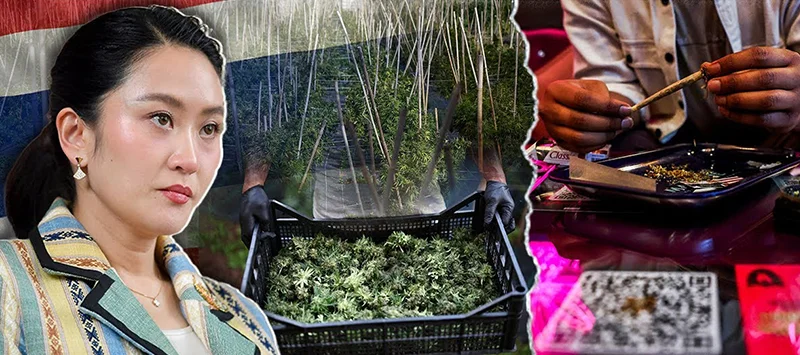
Retail, Consumption & Distribution Rules
Cannabis retail in Thailand has entered a strict medical-only phase as of June 2025. Dispensaries must now hold valid licenses and transition to serving only patients with a prescription from a qualified practitioner.
Key requirements for dispensaries and retailers include:
- Only sell to patients holding valid medical prescriptions (maximum 30-day supply per prescription)
- Source all cannabis flowers exclusively from DTAM-certified, GACP-compliant growers
- Maintain detailed records for traceability and submit monthly reports to the Department of Thai Traditional and Alternative Medicine (DTAM)
Public consumption is completely banned, with enforcement via:
- Fines up to 25,000 Baht (approximately US$700) or up to three months imprisonment for smoking cannabis in any public space
Distribution channels and advertising face stringent controls:
- Online sales, vending machine distribution, and sales in public places (including parks, temples, dormitories, and schools) are illegal
- All advertising and promotional activities are prohibited
Strict demographic restrictions apply:
- Sales to anyone under 20 years old, or to pregnant or breastfeeding women, are forbidden
For tourists, expats, and medical visitors:
- Recreational purchases are illegal, and public use is strictly sanctioned
- Only those with a proper Thai medical prescription may buy or use cannabis products
Thailand’s updated cannabis laws prioritize traceability, patient safety, and clear penalties. Businesses and individuals should focus on full legal compliance to avoid steep fines, business closure, or prosecution.
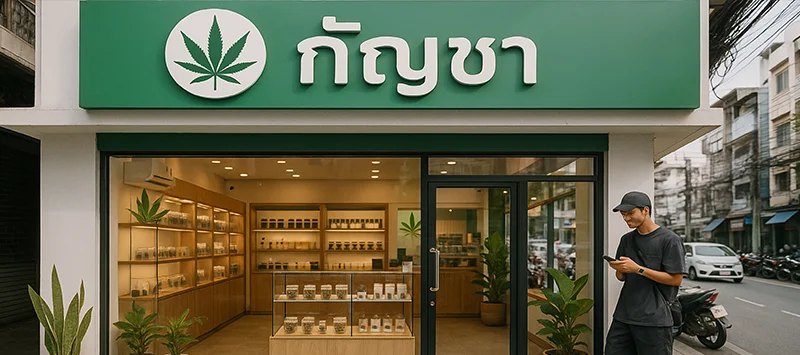
Enforcement, Monitoring & Penalties
Thailand’s cannabis enforcement landscape has intensified sharply since June 2025, especially in Bangkok and other major urban centers.
Key regulatory measures now include:
- Routine inspections of dispensaries and grow operations by provincial health officials
- Monthly reporting requirements: all licensed operators must submit product tracking and source verification data to the Department of Thai Traditional and Alternative Medicine (DTAM)
Outcomes from increased enforcement since the ban:
- Over 70 shop closures in Bangkok reported within the first month
- Numerous legal actions initiated for non-compliance, including improper sourcing or prescription violations
- Confiscations and arrests primarily target unlicensed sales and recreational use
Ongoing regulatory trends and anticipated changes:
- Government communications caution further tightening, with cannabis potentially returning to narcotics classification
- New compliance audits announced for Q3 2025, with a strong focus on GACP-certified product origin
Current loopholes and area-specific guidance:
- Ambiguities remain around CBD-infused products under 0.2% THC
- Official guidance recommends avoiding online sales and limiting retail to prescription holders with verified documentation
Local compliance standards and enforcement are rapidly evolving, making DTAM updates and strict documentation critical for every legal cannabis operator and user in Thailand.
Economic & Social Impacts
Thailand’s return to a strict cannabis policy has triggered a rapid contraction in an industry valued at nearly $1 billion USD as of 2024.
Key impacts include:
- Small growers and many retailers face market exit due to high costs of Good Agricultural and Collection Practices (GACP) certification and compliance
- Investors have pulled back, intensifying financial uncertainty for startups and international players
- Legal dispensaries must overhaul operations for traceability and prescription-only retail, causing additional expenses
Operational risk and livelihood threats are significant:
- Loss of income for thousands who built businesses post-2022
- Rising compliance costs for documentation, product tracking, and monthly reporting to the Department of Thai Traditional and Alternative Medicine (DTAM)
- Clarity and timelines for certification are strict, leaving little room for transition
Analysts are warning of social risks:
- Black market activity is resurging as enforcement increases and barriers to legal operations grow
- Activists, patients, and business groups cite threats to access, fairness, and economic stability
- Government frames the policy as youth protection and public safety, while critics point to potential illicit trade and political motives
For legal safety, businesses and individuals should focus on full GACP compliance and avoid all unlicensed sales or use. The legal environment remains in flux, making vigilance essential for all stakeholders.
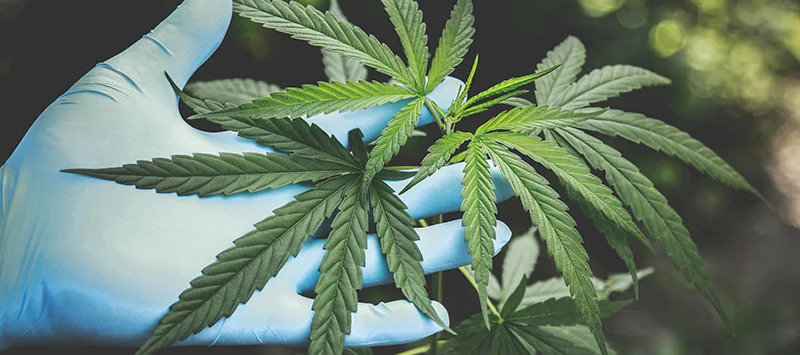
International Context & Comparative Analysis
Thailand’s return to a medical-only cannabis regime makes it stricter than many Western countries and closer to regional peers, such as Singapore and Malaysia, where both recreational and medical use remain largely prohibited.
Neighboring countries take the following stances:
- Singapore: Absolute ban on cannabis, with penalties including long prison terms and capital punishment for trafficking.
- Malaysia: Project-based medical pilot, but recreational use is criminalized.
- Vietnam: Cannabis is illegal for all purposes, with heavy penalties for possession and trafficking.
Globally, medical cannabis access frameworks vary:
- Thailand: Allows prescription-only use, with maximum 30-day prescription limits and controlled herb classification.
- Germany, Canada, Australia: Broader access to medical cannabis, supported by standardized supply and patient tracking.
Foreign investors should note:
- Cross-border import/export is highly restricted.
- Only DTAM-certified, traceable cannabis is legal for medical channels.
- Non-compliance or exports outside Thailand’s regulatory scope may result in legal action.
Tourism operators and international clinics must:
- Verify all sourcing against Good Agricultural and Collection Practices (GACP) standards.
- Provide clear patient documentation and comply with reporting to Thai authorities.
The Thai government is signaling a probable return to narcotic classification within two years, which may further limit market participation and increase risk for non-compliance. Ongoing regulatory evolution calls for up-to-date due diligence and robust internal compliance for any cross-border cannabis activity relating to Thailand.
Compliance Roadmap for Businesses & Individuals
All cannabis businesses in Thailand must shift to a medical-only model as of June 2025.
Prepare by following this transition checklist:
- Secure DTAM certification: Apply for Good Agricultural and Collection Practices (GACP) for all cultivation, export, or dispensing activities.
- Document all sales: Ensure every medical cannabis transaction is supported by a prescription, with traceability and monthly reporting to the Department of Thai Traditional and Alternative Medicine (DTAM).
- Cease recreational retail: Stop all recreational sales, online orders, and advertising immediately.
Dispensaries and clinics must:
- Source products only from certified growers.
- Limit prescriptions to 30-day supplies per patient.
- Maintain detailed records for audits and inspections.
For individuals:
- Only access cannabis with a valid prescription from a qualified Thai medical practitioner.
- Do not consume cannabis in public or share it with others.
- Avoid purchasing from uncertified sources.
Tourists and expats should:
- Never use or carry cannabis recreationally.
- Obtain clear guidance from official DTAM and Ministry of Public Health resources.
- Contact DTAM via their official portal or hotline before engaging with medical cannabis.
Stay updated, as regulatory changes and increased enforcement are expected through 2026. Ensuring strict compliance protects against severe penalties and supports long-term participation in Thailand’s evolving legal cannabis industry.
Frequently Asked Questions
What is legal as of June 2025?
- Recreational cannabis is banned nationwide in Thailand.
- Only medical cannabis is allowed, and you must have a prescription from a qualified practitioner.
- All dispensary sales now require valid prescriptions and product traceability to DTAM-certified suppliers.
How do I get a medical prescription and what are the rules?
- Prescriptions are valid for up to 30 days and must be issued by a licensed medical professional.
- Only patients meeting medical necessity criteria may access prescribed cannabis.
What are the key compliance deadlines?
- Immediate compliance with the recreational ban started on June 26, 2025.
- All commercial growers, exporters, and dispensaries must meet GACP certification and monthly reporting requirements to the Department of Thai Traditional and Alternative Medicine (DTAM).
What penalties and risks should I know about?
- Public cannabis use can lead to up to three months in jail or a 25,000 Baht (US$700) fine.
- Possession of extracts with over 0.2% THC or more than 30 grams is treated as a narcotics offense, with severe legal consequences.
For the most up-to-date support, contact the DTAM hotline or refer to official government notices, especially as regulations continue to evolve rapidly in Thailand.
Conclusion
The rapid evolution of the Thailand Cannabis ban underscores the importance of immediate compliance, ongoing vigilance, and expert legal guidance for all businesses and individuals operating in this sector. By understanding the latest Thailand marijuana restrictions and adhering to every aspect of the new medical-only framework, you can protect your business, your patients, and your long-term opportunities in Thailand’s regulated environment.
Now is the time to secure DTAM certification, update internal protocols for prescription-only sales, and review your entire compliance roadmap with a qualified legal partner. If you have questions on Thai cannabis policy changes, navigating certification, or structuring your operations for regulatory audits, consulting a dedicated advisor ensures you remain prepared and protected as rules develop.
- Prioritize legal due diligence and monthly reporting for every transaction
- Engage with trusted legal counsel for tailored, real-time compliance strategies
- Never rely on outdated frameworks policy shifts in Thailand often occur with little notice
- Leverage Themis Partner’s expertise for cost-effective legal solutions designed to simplify complex requirements
Regulatory clarity is the critical differentiator for those who seek long-term success in Asian markets. How will you shape your cannabis strategy to thrive while others risk falling behind amid Thailand’s evolving legal landscape?
